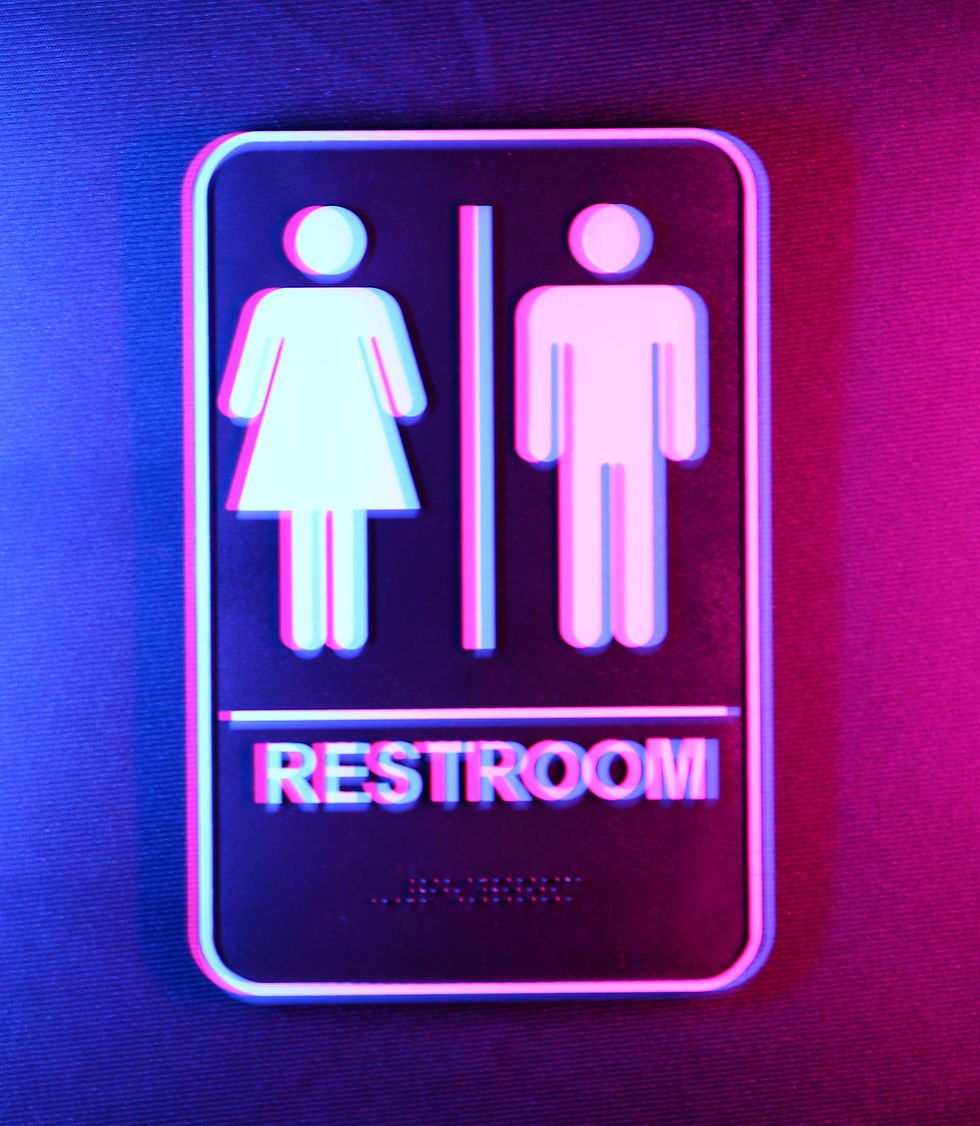Beyond Closed Doors
- lalithaadatta
- Apr 8, 2023
- 4 min read
Updated: Apr 8, 2023
A look at FISD's bathroom policy

Photo by Paige Gurnsey
The Frisco ISD board of trustees unanimously voted on a policy across the district in November during Transgender Awareness week that requires students and faculty to use the restrooms that align with their biological sex.
However, the district doesn’t restrict accommodations for students or parents upon request. This includes providing transgender students with access to the nurse’s office and other separate facilities. FISD didn’t have a written policy prior to its approval in November.
While opponents, like the ACLU of Texas, view this new practice as “deeply invasive and unlawful,” defenders feel that it maintains the safety of the majority of the student body population.
Why FISD made a change
Two recently elected FISD board members proposed a policy similar to what Grapevine-Colleyville ISD issued a month earlier. GCISD’s practice echoes the Parental Rights in Education Bill—which prohibits the discussion of sexual orientation and gender identity as a result of maintaining a common sense measure—filed by the state of Florida a year before as mentioned in a Washington Post article.
According to ABC news, FISD “has been entrenched in right-leaning political battles over the last year regarding education,” and this is due to a GOP-aligned political action committee that has funded the new district board members which, based on a report by The Dallas Morning News, launched a campaign after the election caught their attention.
Similar scenarios have occurred throughout the North Texas area like Keller ISD, which initiated a similar policy six months after their district board election. Texas Tribune has stated that the three newly elected members of KISD received “large donations from a Christian political action committee,” to promote the officiality of these policies.
A statement from FISD provided legal context on the bathroom policy and said its intention is to ensure all students are safe and comfortable at school while also complying with federal legal standards.
What it means for our school
The district wrote in a release the practice does not violate federal law since it is adopted from the GCISD policy, which includes the phrase “to the extent permitted by law,” and remains consistent with FISD’s current practices.
“There are several single-use stalls on every campus,” Korinna Kirchoff, assistant communications director, said in an email. “From the nurse's office to a staff restroom, there are several options throughout the building. [The process of choosing a private restroom] is individualized between what the student, their parents, and administration agree upon.”
While this practice has been occurring since before the policy was addressed during the board meetings, Frisco’s chief of student services mentioned to Fox 4 News that there have been fewer than 50 such accommodations for the 40,000 plus students attending Frisco’s middle and high schools.
Multiple news sources, including CBS News, Local Profile, and Fox 4 News have confirmed that FISD has recorded 361 documented bathroom incidents, yet none of them involved anything related to transgender students.
What people are saying about it
At the November meeting to discuss the bathroom policy proposed in September, over 20 guest speakers came to raise their opinions during public comments.
Voices supporting the policy, as reported by Texas Scorecard, claimed that the district broke the community’s trust having “permitted transgender boys in girls’ restrooms and vice versa for seven years without the knowledge or consent of the board and parents.”
FISD board trustee Marvin Lowe confirmed that the aforementioned practices have occurred without acknowledgement of the board members as well.
“Don’t you think most parents would want to know?” Lowe said.
Other parents were on board with the new regulation and have suggested additions. One asserted that the district should completely ban transgender athletes from participating in school sports, LGBTQIA+ books from school libraries, and teachers from educating on gender identity.
According to CBS News, “Rep. Valoree Swanson, who authored the bill, said the bill was about ‘fairness,’” but contenders have said administering such bills in the past has caused a significant increase in the number of phone calls from transgender students to suicide hotlines.
A study from March 2022 conducted by four professors and published to the Journal of Interpersonal Violence found that 82% of transgender youth contemplated suicide and 40% attempted it. It also stated “school belonging, emotional neglect by family, and internalized self-stigma” were prime factors.
Parents who are against the new bathroom policy worry the outcomes of those types of studies might arise in the district. They believe this practice is unfair and exclusive, and subjects transgender students to an environment that provokes bullying.
Based on a story by Spectrum Local News, Kris Sloan, an education policy professor from St. Edward’s University, said the policy marginalizes transgender students with a lack of evidence to prove withdrawing the policy is dangerous to other students, and “is just another way of fear mongering around trans issues.”
Progressive organizations, namely ACLU, have issued complaints against the district as well.
The complaint made by the ACLU requests the Office for Civil Rights (OCR) of the national education department to investigate FISD’s bathroom policy and determine if it discriminates against students on the basis of sex. They also called upon the OCR to take all necessary measures to ensure the district complies with Title IX: a federal law that forbids any discrimination against sexuality or gender identity in schools.
ACLU claims the policy will “harm transgender, non-binary, gender diverse, and intersex students, and substantially invade their privacy,” and allow the district to “challenge or second-guess students’ official birth certificates.”
A report from Local Profile says the OCR has yet to open investigations, but it could take months for that to happen.

Comments